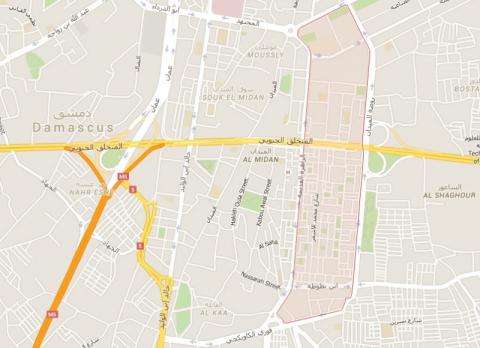Syria: Construction Worker Disappeared Since Arrest at Idlib Checkpoint in April 2012

On 8 September 2015, Alkarama and Human Rights Guardians sent a communication to the United Nations Working Group on Enforced Disappearances (WGEID) regarding the case of 31-year-old Syrian construction worker, Ali Mostoo, who disappeared following his arrest, in April 2012, by forces of the Military Security Branch in Idlib, an intelligence agency under the control of the Ministry of Defence.
On 8 April 2012, as Ali was about to pass the Al Shughur checkpoint controlled by the Syrian army and the security forces in Idlib, 60km southwest of Aleppo, with one of his relatives, he was asked to stop his Honda pickup truck and was immediately arrested by officers dressed in military and civilian clothes, who did not present any arrest warrant.
Following his arrest, Ali's relatives enquired about his whereabouts at the National Hospital and at the Military Security Branch in Jisr Al Shughur, where they were informed that he had been taken to the Military Security Branch in Idlib. A week later, his family was able to visit him there once before being told that Ali had been transferred to Damascus, although no further information was provided.
Fearing to be arrested, like many, at one of the numerous and increasing military checkpoints on the road to Damascus, Ali's family did not attempt to go to Damascus to look for him. Left with no other resort at the national level, his relatives contacted Human Rights Guardians and Alkarama in the hope that they could help shed light on Ali's fate and whereabouts. In view of the facts mentioned above, the two human rights organisations seized the WGEID asking this UN human rights mechanism to call upon the Syrian authorities to release him immediately or, at the very least, to put him under the protection of the law by disclosing his whereabouts and allowing his family to visit him without restriction.
"The worst in the numerous cases of enforced disappearances that we are witnessing in Syria is that families of the victims often avoid reporting the disappearance of their relatives to the authorities for fear of suffering the same fate," explains says Inès Osman, Legal Officer for the Mashreq at Alkarama. "Most victims of enforced disappearances in Syria are nonetheless arrested at military checkpoints or during operations of mass arrests carried out by the army without any judicial warrant, and without ever providing information on the fates of the victims to their families, who also become the victims of the regime's strategy of terror."
In the face of the numerous cases of enforced disappearances received, Alkarama urges the Syrian authorities to put an end to the systematic practice of enforced disappearance in accordance with their obligations under international law, to open investigations into all reported cases of disappearances, to prosecute the perpetrators of these crimes and to provide reparations to survivors and their families.
For more information or an interview, please contact the media team at media@alkarama.org (Dir: +41 22 734 1008).
